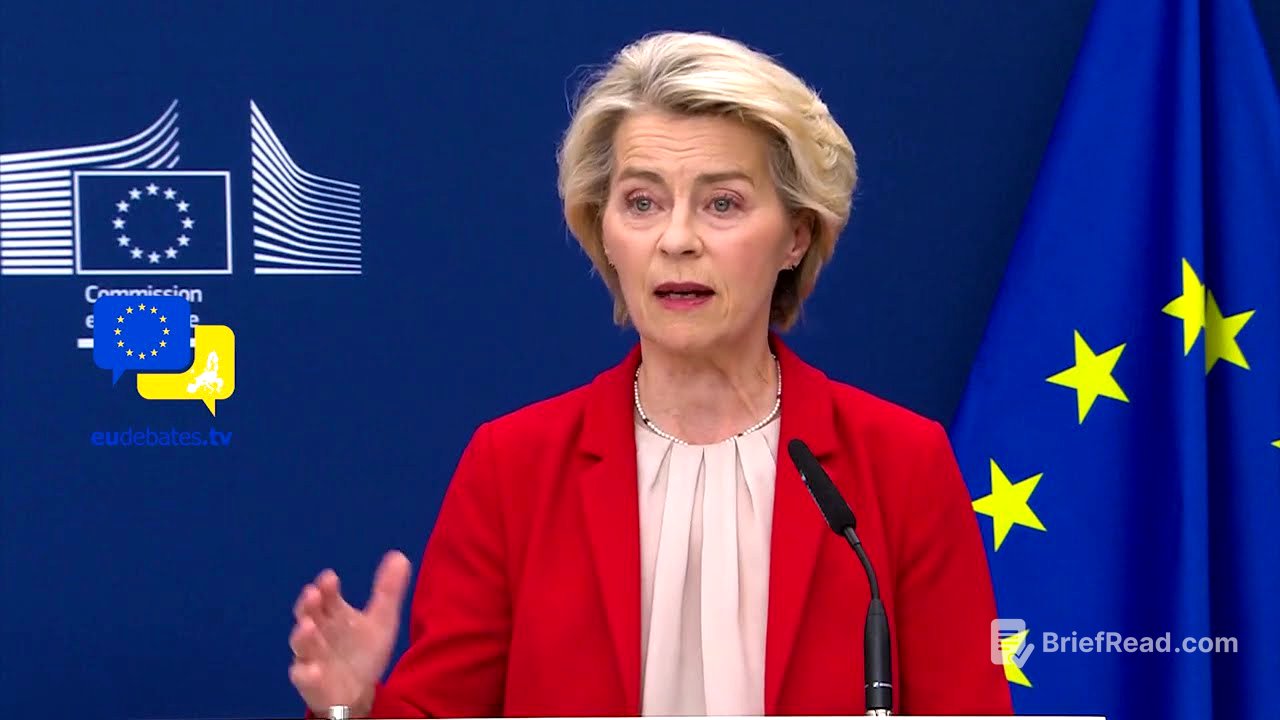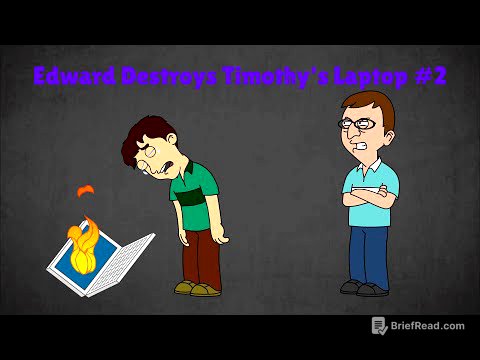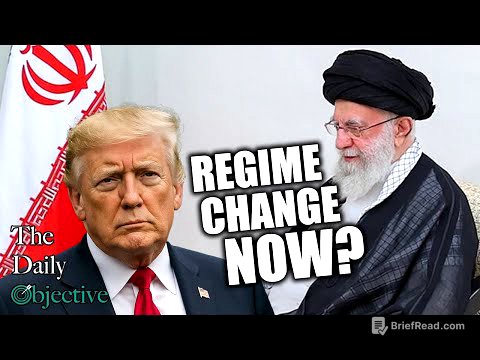TLDR;
The speaker discusses the ongoing conflict in Ukraine and the European Union's response, emphasizing the need for peace and the intensification of pressure on Russia through sanctions. Russia's economy is suffering significantly due to these sanctions, with its access to reserves blocked, revenues from oil and gas plummeting, and import costs soaring. The EU is proposing an 18th package of stringent sanctions targeting the Russian energy and banking sectors, aiming to further cripple Russia's ability to finance the war. These measures include banning transactions related to Nordstream pipelines, reducing the oil price cap, targeting Russia's shadow fleet, restricting access to critical technologies, and sanctioning entities supporting Russia's military-industrial complex. The ultimate goal is to compel Russia to engage in genuine peace negotiations and end the war in Ukraine.
- EU aims for peace in Ukraine but Russia continues its aggression.
- Sanctions are crippling the Russian economy, necessitating further action.
- New sanctions target energy and banking sectors, including Nordstream and oil price caps.
- Focus on preventing sanctions evasion and restricting access to technologies.
- Goal is to force Russia to negotiate for peace with a genuine proposal.
Opening Remarks: The Need for Peace and Increased Pressure on Russia [0:01]
Despite diplomatic efforts and calls for a ceasefire, Russia continues to inflict death and destruction in Ukraine, with its true aim being the establishment of dominance through force. The EU is intensifying pressure on Russia, as it believes that force is the only language Russia understands. The Russian economy is already suffering significantly due to existing sanctions, including the blocking of €210 billion in central bank reserves and an almost 80% drop in oil and gas revenues compared to pre-war levels. Russia's deficit is rapidly increasing, interest rates are prohibitively high, and inflation is well above 10%. The cost of importing technology and critical goods is six times higher than before the war, relative to average global prices. The EU's message is clear: the war must end, a genuine ceasefire is needed, and Russia must come to the negotiating table with a serious proposal.
The 18th Package of Sanctions: Targeting Energy and Banking Sectors [1:50]
The EU is proposing an 18th package of stringent sanctions, primarily targeting the Russian energy and banking sectors. For the first time, the EU is proposing a ban on transactions related to Nordstream One and Nordstream 2, preventing any EU operator from directly or indirectly participating in transactions associated with these pipelines, signaling that there is no going back to the past. Additionally, the EU is proposing to lower the oil price cap from $60 to $45 per barrel to adapt to changing market conditions and restore its effectiveness, as oil exports still constitute a third of the Russian government's income. The EU will discuss these measures with G7 partners at an upcoming summit in Canada.
Targeting Russia's Shadow Fleet and Banking Restrictions [3:28]
In addition to more effectively enforcing the existing sanctions, the EU is adding 77 vessels to the list of sanctioned entities, identifying them as part of Russia's shadow fleet used to circumvent sanctions. These listings aim to severely limit Russia's ability to export oil through this shadow fleet. Furthermore, the EU is introducing a ban on importing processed products based on Russian crude oil to prevent Russian crude oil from entering the EU market through loopholes. The EU is also targeting the Russian banking sector by restricting its ability to raise funds and conduct operations, proposing to convert the existing ban on using the Swift system into a complete transaction ban for 22 Russian banks.
Expanding Sanctions to Third Countries and Export Bans [4:41]
The EU is proposing to extend the transaction ban to financial operators in third countries that finance trade with Russia in circumvention of sanctions. Sanctions are also proposed against the Russian Direct Investment Fund, its subsidiaries, and its investment projects, which aims to restrict a significant channel for funding projects to modernize the Russian economy and strengthen its industrial base. Additional export bans worth over €2.5 billion are proposed, depriving the Russian economy of critical technologies and industrial goods, specifically targeting machinery, metals, plastics, and chemicals used as raw materials in industries.
Enforcement and Restrictions on Dual-Use Goods [5:37]
The EU is restricting the export of dual-use goods and technologies used for the production of drones, missiles, and other weapon systems to prevent Russia from modernizing its weaponry using European technologies. To ensure better application and respect for sanctions, the EU is expanding the scope of the existing transaction ban and listing 22 Russian and foreign companies that provide direct or indirect support to Russia's military-industrial complex. The ability of Putin to sustain the war heavily depends on the support he receives from third countries, and those supporting Russia's war and efforts to conquer Ukraine bear significant responsibility.
Call for Ceasefire and Negotiations [6:42]
With this package, the EU is intensifying pressure on Russia, reiterating the call for a complete and unconditional ceasefire for at least 30 days. This pause in hostilities could be a vital step towards alleviating the suffering of civilians and creating space for meaningful negotiations towards genuine peace.









